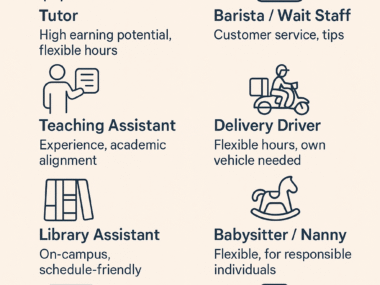Finding a job in South Korea as a foreigner can be an exciting adventure, but it often comes with its unique challenges and considerations. Whether you are looking to kickstart your career or make a living while enjoying the rich culture of Korea, there are numerous opportunities available.
This article will guide you through the process, provide insights into the job market, and help you navigate the various options.
Understanding the Job Market in South Korea
The South Korean job market is diverse and dynamic, shaped by its economy’s needs and cultural nuances. Here are some key points to consider when searching for a job as a foreigner:
- Language Proficiency: While many companies seek English speakers, knowing Korean can significantly boost your employability. Proficiency in the Korean language, particularly at an advanced level, is often a requirement, especially for roles involving communication with local clients or stakeholders.
- Skill Over Degree: In South Korea, employers often prioritize skills and practical experience over formal educational qualifications. This means that if you have specific skills or expertise, you may find it easier to secure a position, even if you don’t possess a college degree.
- Networking: Building a professional network can be crucial in South Korea. Many jobs are filled through word-of-mouth referrals, so connecting with locals and expatriates can open up job opportunities.
- Visa Requirements: Make sure to familiarize yourself with the visa requirements for working in South Korea. Most foreigners will need a work visa, and the type of visa will depend on the job you are applying for.
- Cultural Fit: Understanding and adapting to South Korean workplace culture can enhance your chances of success. Familiarize yourself with local customs, etiquette, and work ethics.
Now that we have a clearer understanding of the job market, let’s delve into the types of jobs you can consider as a foreigner in South Korea.
Five Types of Jobs Available for Foreigners in South Korea
- Translation Jobs
If you have a strong command of the Korean language along with another language—be it English, Spanish, French, or Japanese—translation jobs can be a great option. Many translation agencies in South Korea are constantly on the lookout for skilled translators.- Requirements: Proficiency in Korean is essential, usually at least to the level of TOPIK Level 4. You’ll need to demonstrate your ability to translate effectively between languages.
- Salary Expectations: Salaries vary widely based on experience and the complexity of the translation work, but they can be lucrative, especially for specialized fields such as legal or technical translation.
- Teaching Jobs
Teaching English (or other languages) is one of the most common jobs for foreigners in South Korea. With a high demand for English teachers, there are numerous opportunities available in public schools, private language institutes, and even corporate settings.- Requirements: Typically, you’ll need a bachelor’s degree in any field and a TEFL/TESOL certificate. While English teaching jobs are the most popular, you can also teach other subjects like math, science, or even art.
- Salary Expectations: The salary can range from 2 million to 6 million KRW per month, depending on your qualifications, experience, and the institution you work for.
- Management Roles in Trading Companies
South Korea is a major player in international trade, and many companies are seeking foreign employees who can manage relationships with international clients. If you have experience in trade management or business administration, this could be an excellent fit.- Requirements: Strong interpersonal and management skills, along with a good understanding of trade and market dynamics. Knowledge of the languages relevant to your target markets can be a significant advantage.
- Salary Expectations: Management roles often come with higher salaries, starting around 3 million KRW and potentially exceeding 5 million KRW, depending on the level of responsibility and the size of the company.
- Restaurant Jobs
If you are in South Korea on a student visa or looking for part-time work, restaurant jobs can be a viable option. Many restaurants are open to hiring foreigners, especially in tourist areas or international districts.- Requirements: Generally, no specific qualifications are required, but having some level of Korean language ability can be helpful. A friendly attitude and willingness to learn will also go a long way.
- Salary Expectations: The pay typically starts at the minimum wage of around 9,150 KRW per hour, with opportunities for tips and bonuses based on performance.
- Factory Jobs
Factory jobs are often available for foreigners, regardless of language proficiency or educational background. Many factories in South Korea need laborers for assembly lines and production processes.- Requirements: No specific skills or degrees are necessary, although basic communication skills in Korean can be helpful.
- Salary Expectations: The hourly wage is generally around the minimum wage, but it can increase with experience or overtime.
Tips for Securing a Job in South Korea
1. Polish Your Resume
Your resume should reflect your skills, experiences, and accomplishments relevant to the job you are applying for. Tailor your resume for each application to highlight your most pertinent qualifications.
2. Use Job Portals
Several job portals specialize in jobs for foreigners in South Korea. Websites like JobKorea, Craigslist, and LinkedIn are good places to start your job search. You can also explore specialized sites like Teach Away for teaching positions.
3. Network
Join expatriate communities online or attend local events to meet people who can provide insights and job leads. Platforms like Meetup and Facebook Groups can be valuable resources for networking.
4. Prepare for Interviews
Be ready for interviews by researching the company and preparing answers to common questions. Be sure to demonstrate your understanding of Korean workplace culture and how you can contribute to their team.
5. Learn the Language
If you plan to stay long-term, investing time in learning Korean can significantly enhance your job prospects. Many language schools offer classes that can accommodate your schedule.
Navigating Visa Requirements
To work legally in South Korea, you will need the appropriate visa. Here are the most common types of work visas available:
- E-2 Visa (Teaching English): This visa is for foreign teachers and requires a job offer from a school. You’ll also need to submit various documents, including a criminal background check and proof of your degree.
- E-5 Visa (Professional Employment): This visa is for professionals in specific fields, such as engineering or business. You’ll need to demonstrate relevant qualifications and job offers.
- D-10 Visa (Job-Seeking Visa): If you’re in South Korea on a student visa or want to search for jobs after graduation, the D-10 visa allows you to stay while looking for employment.
- Working Holiday Visa: This visa allows young people from certain countries to work while traveling in South Korea. It’s a great way to gain experience while exploring the country.
Adapting to Workplace Culture
Understanding Korean workplace culture is essential for your success as a foreigner. Here are some cultural norms to keep in mind:
- Hierarchy: South Korean workplaces often operate on a strict hierarchical system. Respect for seniority and experience is paramount, and it’s important to address colleagues appropriately based on their titles and positions.
- Group Orientation: Teamwork is highly valued in Korean culture. Collaboration and consensus-building are often prioritized over individualism.
- Work Hours: Be prepared for long working hours. The standard workweek is typically longer than in many Western countries, with overtime being common.
- Professionalism: Dress appropriately and maintain a professional demeanor. Punctuality is crucial; being late can be viewed negatively.
Conclusion
Finding a job as a foreigner in South Korea can be a rewarding experience, providing you with opportunities for personal and professional growth. By understanding the job market, honing your skills, and adapting to the local culture, you can successfully navigate the challenges of securing employment in this vibrant country.
Whether you aim to teach, translate, or work in management, the key is to be proactive, persistent, and open to learning. With the right approach, you’ll find your place in South Korea’s diverse workforce and enjoy all the unique experiences that come with it. Good luck with your job search, and may your journey in South Korea be filled with success and excitement!

